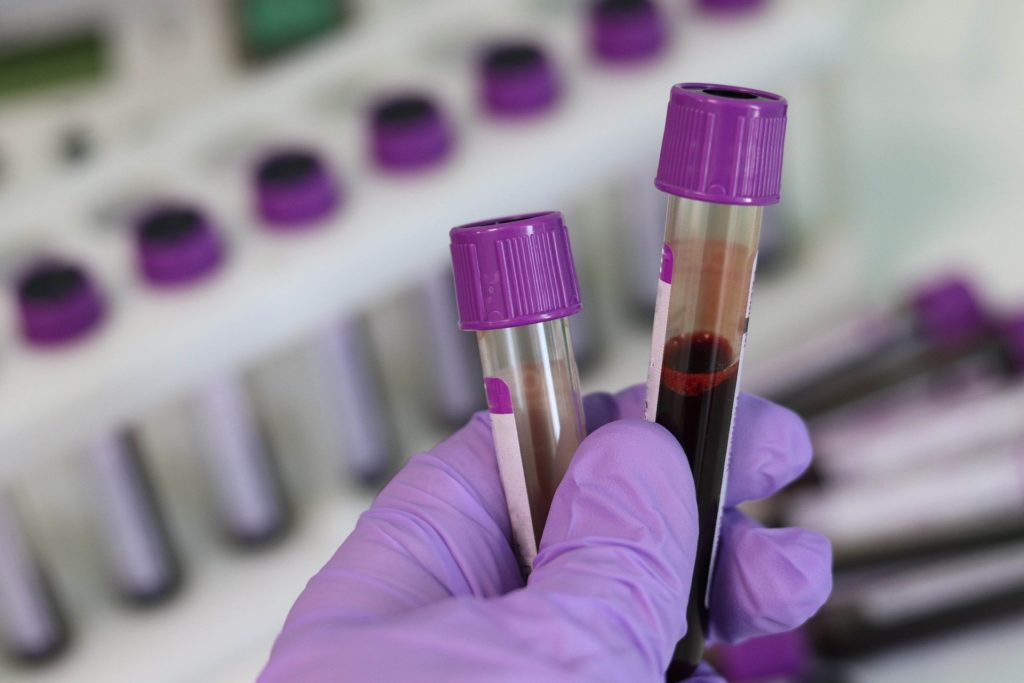A blood test could soon be used to detect Alzheimer’s disease up to 20 years before symptoms develop.
Several new studies show that levels of tau, a hallmark protein of Alzheimer’s, in the blood could be used to detect the disease.
The studies, and two published papers, have been presented at the Alzheimer’s Association International Conference (AAIC).
The research focuses on a specific form of tau, known as p-tau217.
It suggests blood levels of p-tau217 can predict the development of Alzheimer’s before symptoms appear.
It can also track levels of tau in the brain and distinguish Alzheimer’s from other diseases that cause dementia.
Dr Rosa Sancho is head of research at Alzheimer’s Research UK.
She told Pat Kenny: "It detects Alzheimer’s disease and people without Alzheimer’s disease or people with other neurodegenerative conditions don't test positive.
"These tests focus on a protein called tau, which we know gets modified in clumps in the brains of people with Alzheimer’s disease and it links into the bloodstream.
"And they found that a particular type of the tau protein is detectable in blood of people with Alzheimer’s disease - even before they experience any symptoms".
"At the moment, this test is only available in a research setting - it wouldn't be available in the clinic yet.
"What they've done is test people that have a familial form of Alzheimer’s disease, so these people we know that at some point they'll start developing symptoms.
"And they were able to see levels of this protein in their blood up to 20 years before they are meant to develop any symptoms.
 Image by Belova59 from Pixabay
Image by Belova59 from Pixabay"And we know from previous research that tau begins to build up in the brain up to 20 years before symptoms develop.
"So the test seems to be really effective at detecting those really early stages of the disease.
"This is quite well known in the dementia world now, that the disease actually starts much, much earlier than what we think - and this is why probably clinical trials have failed in the past.
"We were administering potential drugs to people quite late in the disease process when symptoms were already visible.
"But actually we should be testing drugs much earlier, before people experience any symptoms and try to delay the development of the disease".
However, Dr Sancho admitted there is still no way to prevent Alzheimer’s disease.
"At the moment, the drugs that are available for people with Alzheimer’s disease are not able to slow the progress of the disease, they just help with the symptoms.
"The drugs that are on clinical trial, so they're still under development, they are hoping to target the disease much earlier so they can slow or stop its progression.
"So these blood tests will really help us in those clinical trials".
She said going forward, it is hoped it will "really help us test drugs at early stages and get those sooner to people at a time they can really benefit from them"
"Whether people will want to find out or not [if they have Alzheimer’s disease], I think that depends on whether there will be an effective drug that they can take."
Researchers from Sweden and the US have presented the data that indicates levels of a specific form of tau can be measured in blood to detect the disease, even before symptoms appear.
In a separate study, scientists from Washington University have shown that p-tau217 in the blood can also predict levels of amyloid, another hallmark protein of Alzheimer’s disease, in the brain.
They also show that p-tau217 in blood can be used to identify different clinical stages of Alzheimer’s both before symptoms appear and as the disease progresses.









